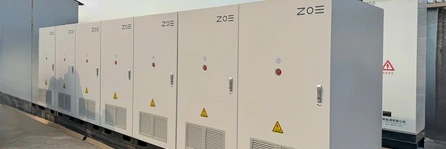When electricity is generated from renewable sources (photovoltaic power plants, wind power plants, etc.), part of the electricity is not consumed by the building where the renewable source is located. Since renewable sources cannot store this electricity, it must be sold at the price that the electricity buyer offers for the purchase of electricity at that time. In most cases, this price is low, and during weekends, it is often even negative.
The main benefit of a battery storage system is its ability to store electricity, whether generated from renewable sources (photovoltaic power plants, wind power plants, etc.) or grid electricity, and use it when it is most suitable for the building.
A typical case is the weekend—battery storage is charged with electricity from renewable sources when the electricity price is low, often even zero, and is sold on Monday morning at a price when the market price is at its peak, i.e., the highest, or it is used for the building's consumption when the building would otherwise pay the high price. This also applies in cases where the building does not have a renewable source; the only difference is that the battery storage is charged with grid electricity when the price is low, often even zero, and sold at the highest price—during the morning and evening peaks.
Another important benefit of battery storage is that it can provide electricity to the building during power outages—it acts as an immediate backup power source. For many operations, this is crucial, as the sudden stoppage of machines and production processes can cause significant and sometimes irreversible damage.
Last but not least, battery storage protects the building from penalties and allows for a reduction in the reserved capacity value. If the performance of any of the technologies exceeds the established and paid reserved capacity (RC), and the building does not have a battery storage system, it will receive a penalty from the distribution company for exceeding the RC. In the presence of a battery storage system, the battery storage will help cover this excess power, so the building does not incur a penalty. For many consumers, this allows them to reduce the reserved capacity, which they have set too high due to the risk of potential penalties, thus saving significant financial resources monthly.








